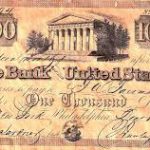When I was at law school at American University Washington College of Law, I was the Executive Editor of The American Jurist, which was the student news magazine for my final year of law school. I wasn’t a particularly fond fan of my law school, I think they made promises to students that they couldn’t deliver on and some of the great opportunities like their law clinics were only available to a small group of students. For example, while I was led to believe my interest and coursework in tax law would merit my consideration in the tax clinic, I did not get a slot for the tax clinic because my name was not pulled out of a hat. So my year as the top editor was dedicating my columns to lambast what was wrong with the school and suggestions on how to improve certain aspects of it like the career services office, the journal and law clinic selection process, and orientation.
Certain students and faculty were very critical of my views because they said my columns would hurt the school because potential students would read the columns and then not get to our school because of what I wrote. It was pure nonsense because my columns criticized the school and then offered suggestions on how to fix the problems I pointed out. After I graduated, many of my suggestions were acted upon by the administration and I am proud of my role in helping the school out.
People don’t like criticism, they can’t handle it. If you criticize, you get labeled as a hater. It’s a label to discredit you and your opinion.
Years ago, an advisor I know sent an e-mail to one of the big movers and shakers in the 401(k) industry. The e-mail had a quote from an outspoken columnist who has been critical of the abuses of the 401(k) industry. The 401(k) big shot was very offended by the quote and took many exceptions to it.
My point is that there are enough problems within the retirement plan industry to criticize and simply attacking those that do is certainly not going to help the industry out. Those who try to shout down those 401(k) critics do a disservice to the industry because it is those critics of fees and investments that have helped spur change within the 401(k) industry. That being said, some consistently attack 401(k) plans without a suggestion to improve them or a realistic way to help the retirement savings crisis in the country. When managed correctly, a 401(k) plan is one of the best employee benefits out there that has helped plan participants save for retirement and lower their current taxable income. People within this industry don’t have to be like Anthony’s neighbors in the Twilight Zone episode “It’s A Good Life” and think “nice, happy thoughts.” If you see something wrong within the industry, say something and offer a way to make things better.







